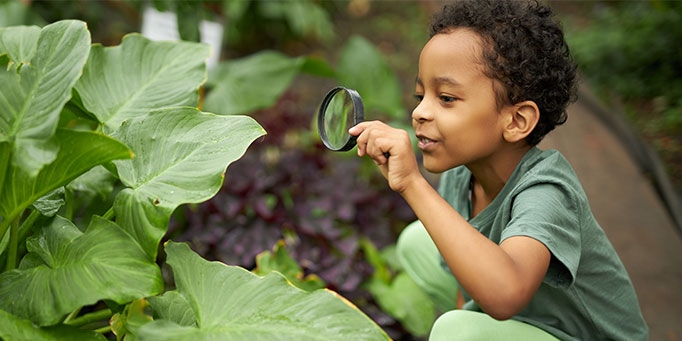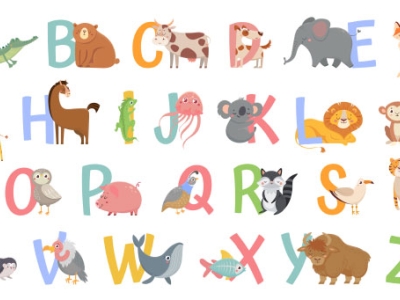
Should we limit our family size for the sake of the planet?
A conversation about children and creation.
Recently I was speaking to an old friend about the topic of creation care and climate change. Among other things, she suggested that having fewer children was better for the planet. She believes that since global overpopulation is threatening the sustainability of the earth, Christians have a duty to avoid having and promoting large families.
Indeed, a study released in 2017 came to the conclusion that having one less child would reduce your carbon dioxide emissions by 58 tonnes per year—far more than selling your car, avoiding long flights or becoming a vegetarian.
I know some Christians who have taken this to heart and decided to limit their family to two children. They see this as a way of loving their global neighbours who would be the most affected by climate change.
To get a broader perspective, I asked a handful of others to contribute their thoughts for this article.
The twin creation mandates
Christians who prioritise creation care are seeking to live out our God-given mandate to rule over—or ‘work and take care of’—the creation on God’s behalf (Genesis 1:26–29; 2:15). But this mandate is inextricably linked with another: to be fruitful, multiply and fill the earth. We have and raise children to become our co-workers and eventually our successors in carrying out our first creation mandate from God.
Dr Mel Crane is a Christian academic working in the field of Public Health and Climate Change. She points out that when sin entered the world, the perfect symbiotic relationships that God created as ‘good’—between people, God and the creation—were spoiled. We see this played out in the way we have failed to care for creation.
She has been influenced by John Stott’s teaching on creation care (John Stott on Creation Care, IVP, 2021). He understood that the primeval command to ‘fill the earth’ isn’t merely to populate it, ‘but to decorate it: to fill it with architecture and music and all the other things with which human beings have filled the earth. And subdue it: developing its resources for the common good’. He concluded that ‘many of us Christians—particularly evangelical Christians—tend to have a good doctrine of redemption and a bad doctrine of creation’.
The two greatest commandments
It’s also important to remember that the ‘greatest commandments’, according to Jesus, are to love God and neighbour (Matthew 23:38). Consequently, Dr Mel Crane thinks our decisions on family size need to be made with consideration for how our choices and actions impact others, including future generations.
‘Our physical health today and into the future relies strongly on the health of the planet. This includes our lifestyle choices—how we travel, how we use energy, how we dispose of waste and what we waste. How we live will have a lasting impact on the air that our future generations can breathe, the food sources and other resources they have access to, the biodiversity of the environment and the stability of the climate. We all need to be looking for ways to care for others by living with a smaller ecological footprint.’
Children are the natural fruit of marriage
Chaplain and mother of five Jocelyn Loane explains that alongside our new covenant mandate to ‘go and make disciples’ (Matthew 28:19), God still desires for his people to have children. In fact, that’s an important purpose of Christian marriage:
‘Has not the one God made you? You belong to him in body and spirit. And what does the one God seek? Godly offspring. So be on your guard, and do not be unfaithful to the wife of your youth.’ (Malachi 2:15)
Children are born not merely to fill the earth, but to fill it with disciples of Jesus—the ultimate ‘godly offspring’.
Anna, a mother of three, has concerns about any philosophy of creation care that would make contraception the expected norm for all Christians. ‘If both husband and wife agree, then it’s fine to exercise sexual restraint for the purposes of having fewer children. But before encouraging contraception use by all Christians, we need to think more deeply about the impact that contraception has on us, as it artificially separates our sexuality from fertility, responsibility and relationship. Sex can become for us purely a recreational activity, available on demand, rather than the God-given sacred act with deep relational and social consequences.’
In the Bible, sex—and therefore marriage—is always linked to the possibility of procreation. In the era of modern science and technology, we can direct our fertility somewhat. Yet ultimately, how many children we have is in God’s hands alone. Children should always be seen as a gift to be welcomed, not as a right or personal lifestyle choice.
Children bring God glory
I spoke to another mother who, together with her husband, has made creation care a priority in her family’s life, factoring it into many decisions including family size. But she has an important reminder: ‘Our climate change worries are temporally bound. That is, God will eventually redeem and renew the creation, and climate change and pollution will not be an issue anymore. But children are eternal. It’s still a wonder-filled thing to bring a new life into the world’.
Every child is created for the purpose of bringing God eternal glory:
‘… bring my sons from afar
and my daughters from the ends of the earth—
everyone who is called by my name,
whom I created for my glory,
whom I formed and made.’ (Isaiah 43:6b–7)
God still sustains his world
Cathy McKay from ‘Light Duties’ blog believes that while Christians ought to be good stewards of the creation, we shouldn’t lose sight of God’s ultimate sovereignty:
‘God sustains his world, even now; Jesus is still Lord. In Revelation we see that even pestilence and destruction unfold under the unrivalled, unsurpassed rule of the King of Kings, who is holding off the end until his purposes have been carried and his words fulfilled (Revelation 6, 17). This age is going to be wound up, and the present creation brought to a close in God’s time, for his purposes, by his hand.
So what the Bible calls good (things like welcoming children in marriage and raising them in God’s ways) is still good. We're to devote ourselves to the things that God loves, as best we can, in the space we inhabit now while we wait for that end. This pursuit of good isn't defined and driven by speculations about the future, but by the goodness God has already shown in his word. We do so in the confidence that God still rules his world.’
Children are not just ‘mouths’
The problem with overpopulation is that the more people there are on earth, the more oxygen, food and resources they consume. According to many scientists, there will soon be too many ‘mouths’ to feed. Globally, we already we consume more in one year than we can supply in half that time. But the Bible sees children not just as consumers, but as producers; they have hands as well as a mouth.
Cross-cultural worker Mary emphasises that children are our hope for the future: the next generation are going to come up with the solutions to our planet’s problems. She said, ‘People destroy the planet, but we actually need people to take care of the planet too’. Mary gave the example of Tony Rinaudo, an Australian farmer who spent 17 years in drought-prone Niger developing a technique called Farmer Managed Natural Regeneration. This technique depends on people working to revive and care for damaged trees, which can eventually rehabilitate their land to be able to produce enough food for them. (Interestingly, Niger’s program of reforestation coincides with it being the country with the highest fertility rate!)
Anna weighs it up like this:
‘If you diligently raise seven eco-warriors, who can cook from scratch, who use bikes for transport, who know how to grow food and repair things, who shop second-hand and who don’t measure life in the abundance of their possessions, then you’ve done a lot more for the environment than raising two or three consumerists’.
Poor families deserve choices
In wealthy Western countries, our populations are not growing, but shrinking. This raises a different set of concerns about whether we will have enough younger people to care for an ageing population, or enough workers to support our economy.
The countries with high birth rates tend to be poorer countries. But, as Mary points out, the many children in developing countries don’t consume anywhere near as many resources as the relatively few children in wealthy countries. Mary highlights the Nobel Prize-winning research found in the book Poor Economics: A Radical Rethinking of the Way to Fight Global Poverty (Penguin Press, 2012) which demonstrates that alleviating poverty ‘is really about giving the poor decision-making abilities and providing them with policy and development solutions that work, rather than controlling their lives by telling them they shouldn’t have kids’.
Raising good stewards
In the end, the question of family size is up to each couple to consider for themselves, under God. We can all agree that the children we already have are a blessing from God, to be treasured and raised up to know, love and serve him, our Creator.
Parents are perfectly placed to steer the next generation away from becoming consumerists, who live to buy (and soon throw out) the latest ‘stuff’, who value comfort and convenience above productive work and real relationships. Let’s help our children to become careful stewards who treasure God’s creation, use its resources wisely and leave behind them not a pile of plastic waste, but a patch of earth that is fertile and fruitful for future generations.
Many thanks to the women who contributed their thoughts to this article.

Revelation
No longer should readers feel intimidated by the book of Revelation. Paul Barnett highlights its major message while at the same time applying that message to our situation today.
For more articles from Growing Faith, subscribe to our monthly e-newsletter.
To hear about the latest books and resources from Youthworks Media, subscribe here.







